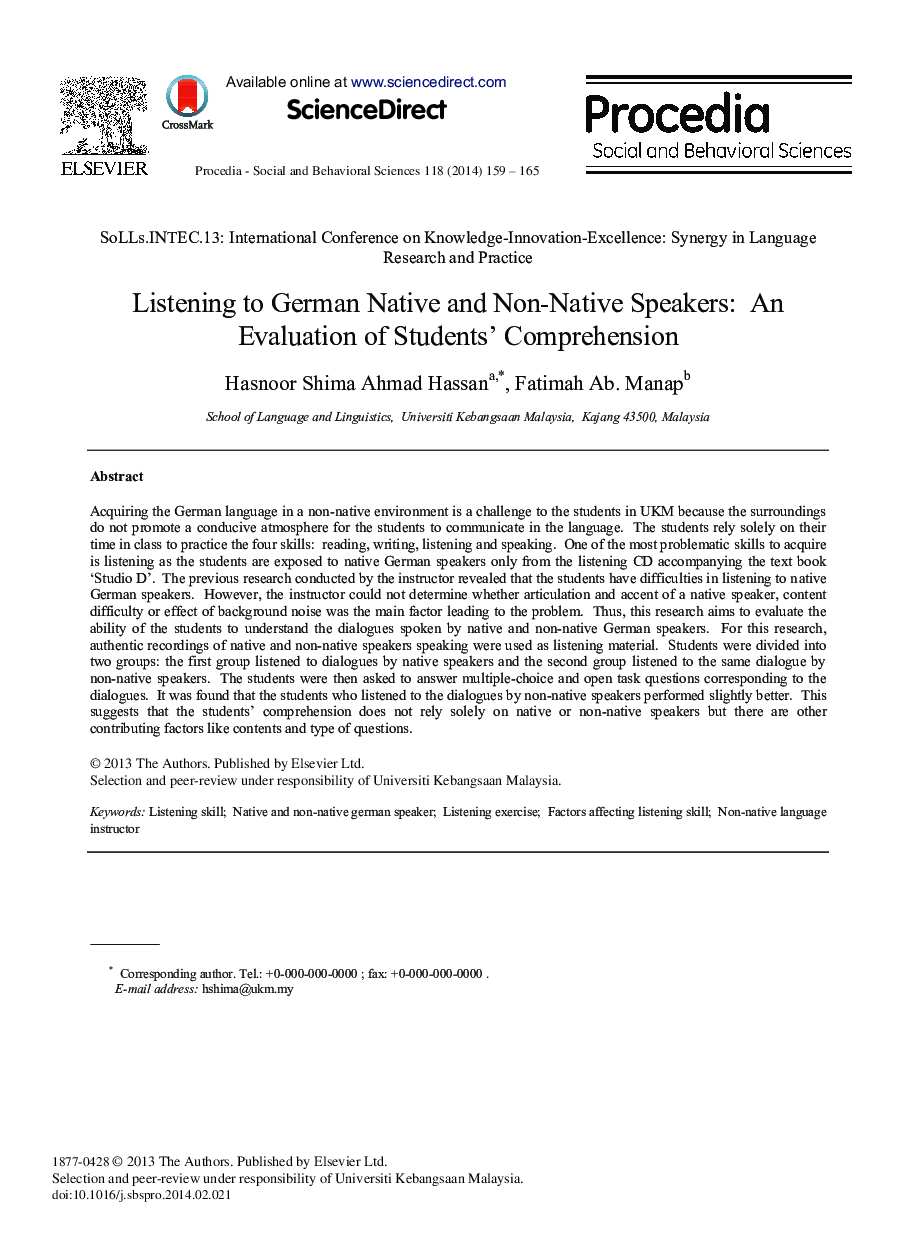| Article ID | Journal | Published Year | Pages | File Type |
|---|---|---|---|---|
| 1115722 | Procedia - Social and Behavioral Sciences | 2014 | 7 Pages |
Acquiring the German language in a non-native environment is a challenge to the students in UKM because the surroundings do not promote a conducive atmosphere for the students to communicate in the language. The students rely solely on their time in class to practice the four skills: reading, writing, listening and speaking. One of the most problematic skills to acquire is listening as the students are exposed to native German speakers only from the listening CD accompanying the text book ‘Studio D’. The previous research conducted by the instructor revealed that the students have difficulties in listening to native German speakers. However, the instructor could not determine whether articulation and accent of a native speaker, content difficulty or effect of background noise was the main factor leading to the problem. Thus, this research aims to evaluate the ability of the students to understand the dialogues spoken by native and non-native German speakers. For this research, authentic recordings of native and non-native speakers speaking were used as listening material. Students were divided into two groups: the first group listened to dialogues by native speakers and the second group listened to the same dialogue by non-native speakers. The students were then asked to answer multiple-choice and open task questions corresponding to the dialogues. It was found that the students who listened to the dialogues by non-native speakers performed slightly better. This suggests that the students‟ comprehension does not rely solely on native or non-native speakers but there are other contributing factors like contents and type of questions.
